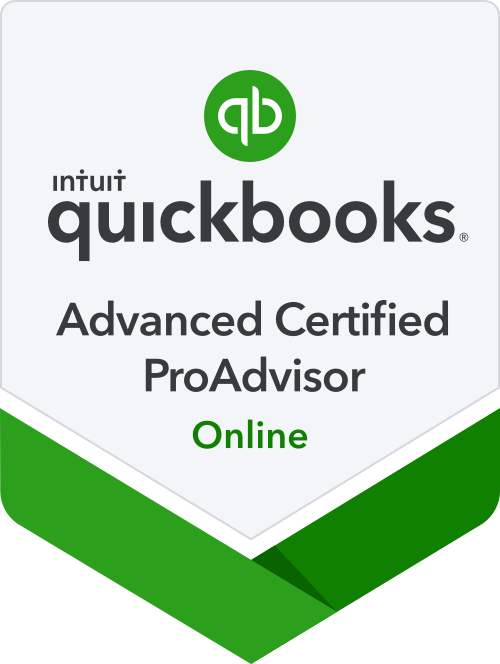Blog

In The Beginning
The above words are the first words that begin the bible.These words are followed by the creation of the world from nothing. Most entrepreneurs can relate to this. They have formed their businesses from nothing.
Everything in life starts from nothing and most businesses start from nothing. However, there has to be a creator who decides to create something from nothing. The question is, what drove these creators? I don’t know what drove God to create the world, but I have seen two drivers which drive a lot of entrepreneurs.
One driver is when an entrepreneur sees a need or gap in the market. The gap could be stumbled upon by luck or accident or it could be the result of extensive dedicated research. However the gap is identified, the entrepreneur rather than accepting the status quo decides to be the solution and offer the solution to the market and a business is born. This is the traditional driver for most business start-ups. The mighty food chainMcDonald’s started to offer fast food, just as grocery shop like Tesco started to offer goods to offer an extensive range of goods for shoppers under one roof. There are lots of different stories where entrepreneurs start a company to fill the gap in the market. Sometimes, there are already companies in the market, but these existing companies are not offering customers what they want or not doing it in the right way. The famous Virgin brand founder Richard Branson talks about struggling to book flights which for him identified an opportunity and he then went on to create an airline.
Another driver is a personal challenge, A lot of entrepreneurs started their business in a desperate need to earn a living, provide for their family or even just to have something to do. It's amazing the number of highly successful entrepreneurs who went on to start highly successful businesses after getting fired from their jobs. Michael Bloomberg used his severance pay to start his highly successful financial company.
My drivers for starting Nathan Grace Ltd are a combination of meeting personal challenges and fulfilling my perceived market need. On one hand, I needed to work to earn a living and provide for my family. There are loads of ways to resolve such a challenge, a common way is to get a job. I trained as an accountant and more importantly I love accounting. I also love working with entrepreneurs so starting a company that supports entrepreneurs with their accounting is an obvious and enjoyable path for me. A common advice is to try and do a job that you love. This is even more important as an entrepreneur. Doing what you love is likely to lead to success as you are likely to devote required time to grow the business and the passion that oozes out of an entrepreneur in love with their product or service is very attractive to buyers. It draws them in.
The other driver is my perception of the market. The current market is flooded with accountants providing accountancy services however the feedback from a lot of entrepreneurs is that their accountant didn’t understand them or was not connecting with them or did not provide a friendly service. So a quality service in terms of accounts preparation and meeting statutory obligations are important, Like most services it needs to be customer friendly.I noticed, took note and I’ve been received love notes aka fantastic customer reviews from my customers of the quality of my service. They have also been sharing their experience leading to growth of my business.
What is your driver, it’s good to know and remind oneself as it is a great motivator, its also a great story to share and a great way to publicise your business. Share your story, I would love to hear it.

Bookkeeping: What, Why, When, Where and Who
What is bookkeeping?
The Cambridge dictionary describes bookkeeping as “the job of keeping an exact record of the money that has been spent or received by a business or other organisation.” I would say it's simply keeping and updating your business’ financial records.
For a lot of entrepreneurs, its not that they don’t know what bookkeeping is, the problem is that it seems to distract from running the business it’s meant to be keeping records of.
While accounting and bookkeeping is not the oldest profession, it does go back to thousands of years and early civilisation. Luca Pacioli an Italian mathematician and Franciscan friar is credited with documenting the current double entry bookkeeping system in use today in the 15th century
Why do we bookkeep?
Apart from me and some of my accounting colleagues, I don’t meet a lot of people that enjoy bookkeeping. However, every entrepreneur I’ve met wants to have well-kept books and they are really happy when their accounting records are up to date and accurate. For me, there are two reasons why you bookkeep.
The first is to meet all obligations including statutory requirement, details about an organisation, its operations and finances must be kept. For instance, the gov.uk site gives more details about accounting records requirements for companies:
https://www.gov.uk/running-a-limited-company/company-and-accounting-records
In order to compute and pay taxes, you need to bookkeep. HMRC requires it.
The more important reason for bookkeeping is to sustain and grow the business. You need to update your financial records so that you have the data and analysis to understand your business performance. This should then guide your decisions. This is not an annual process, you need to analyse and make decisions on an ongoing basis.
When should I bookkeep?
For some this is a silly question because they do it constantly. For others, receipts, invoices and any other financial records are stuffed into piles or in shoe boxes with the hope that it's all handed to the accountant to do his/her magic.
I would advise that the books are kept and updated more frequently then once a year. In fact, they should be updated as often as possible with the small caveat that “as long as it does not interfere with the sustenance, growth and success of the business”. Regular updates simplifies bookkeeping.
There is now no need to spend time manually entering transactions such as expense receipts as most accounting systems can now automatically read and load such transactions into company records. This also solves the need to keep records to meet statutory requirements. In summary, with the right systems and accounting personnel support, the entrepreneur should have up to date accounting records with relatively little time spent bookkeeping
Where/How do you bookkeep?
The days of handwriting accounting records in ledger books are long gone. There are lots of systems and tools that are now used to bookkeep. From spreadsheets to accounting systems like Quickbooks. These tools take the pain away from bookkeeping and give access to data and analysis that helps drive business growth. Relatively simple analysis like profit margins and more complex information on cashflow and working capital can be easily accessible to entrepreneurs. Trends over a number of years are also just as easy to see.
.
Who book keeps
Entrepreneurs should rightly not be spending most of their time bookkeeping. So who should? The entrepreneur has the option of hiring accounting staff if the business is big enough and can afford it? Or bookkeeping can be outsourced to accounting and bookkeeping firms. The options taken will depended on the cost and business need. For instance, Can the business afford to hire a bookkeeper or is it cheaper to get the service supplied? Do the accounts require significant bespoke analysis that cannot be outsourced? These are questions that should influence how the bookkeeping need is met.
However the need is met, bookkeeping should be a tool that supports a business’ success not a pain that distracts from it. If your bookkeeping is not up to scratch, sort it out asap.

Reclaim Tax On Your Donations
Reclaim Tax On Your Donations
If you are a higher rate Taxpayer, you may be able to reclaim tax on donations you have made to registered charities. Here are 7 steps to reclaim tax on your donations.
1. Are you in employment and a higher rate taxpayer?
A higher rate taxpayer means you earn over £43,000 (2016/17 tax year) and therefore pay tax at 40% on any amount over £43000. This amount varies depending on the tax year. Please check this link for prior year thresholds. https://www.gov.uk/government/publications/rates-and-allowances-income-tax/income-tax-rates-and-allowances-current-and-past
2. Have you made donations to registered charities?
A registered charity is registered with the Charity Commission. You can ask your recipient(s) or check on the Charity Commission website. http://apps.charitycommission.gov.uk/Showcharity/RegisterOfCharities/registerhomepage.aspx
3. You do NOT donate through a payroll giving scheme?
A payroll giving scheme is a scheme that allow donations to charities to be made before tax. It is therefore already tax efficient as your tax is reduced. See this link for more details on payroll giving. http://www.payrollgiving.co.uk
4. Calculate all your donations by tax year.
Put together all your donations. You can summarise into a spreadsheet. However ensure you have all your evidence such as bank statements, receipts from the recipient charity. Note that your claim is limited to the last 4 tax years. https://www.gov.uk/claim-tax-refund/too-much-tax-taken-from-your-pay
5. Contact HMRC to let them know you are due a tax reclaim.
You will need your National Insurance number. Be ready to provide the amounts donated by tax year. HMRC's contact number is 03002003300. HMRC will collect the information you provide and recalculate your income tax for the applicable tax year. You will be sent a P800 form. The P800 form will show you if you are due a refund and you will be sent a cheque.
6. Do it Online
You may also be able to make your claim online on the HMRC website using the personal tax account. Discuss this with HMRC and/or see HMRC guidance below. https://www.gov.uk/check-income-tax-last-year
7. If you find this page helpful
Please share the link with your friends and colleagues and feel free to add your comments below or reach out to me via my email address below. If this page has saved you money and you would like to make a donation, please use the link below http://paypal.me/okoyetunde.
Thank you.


